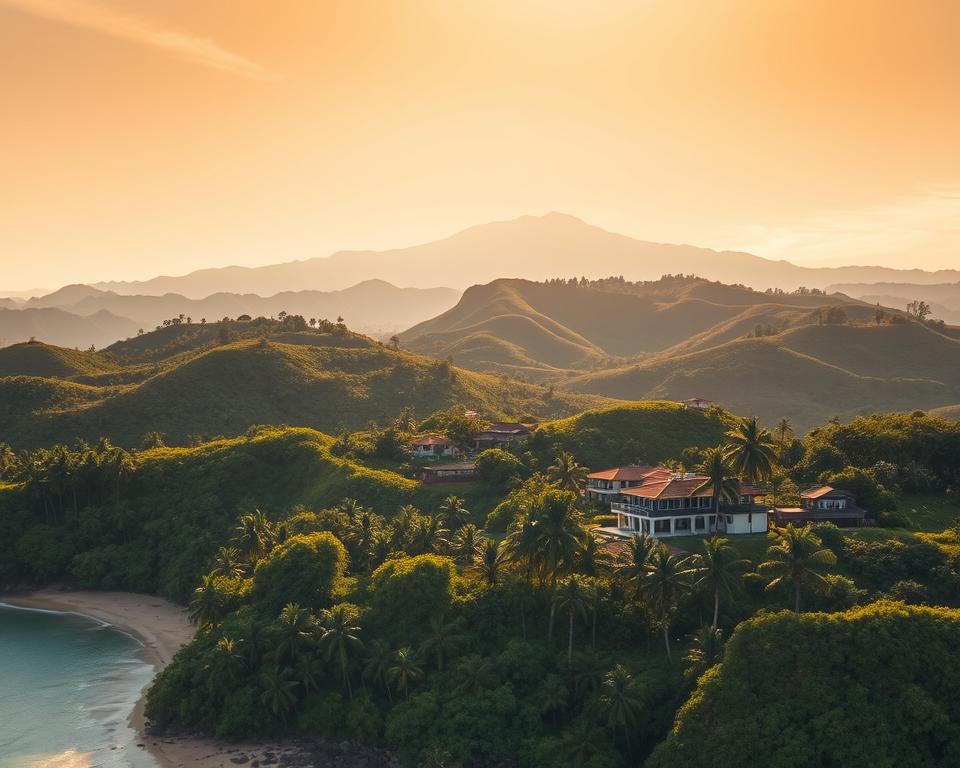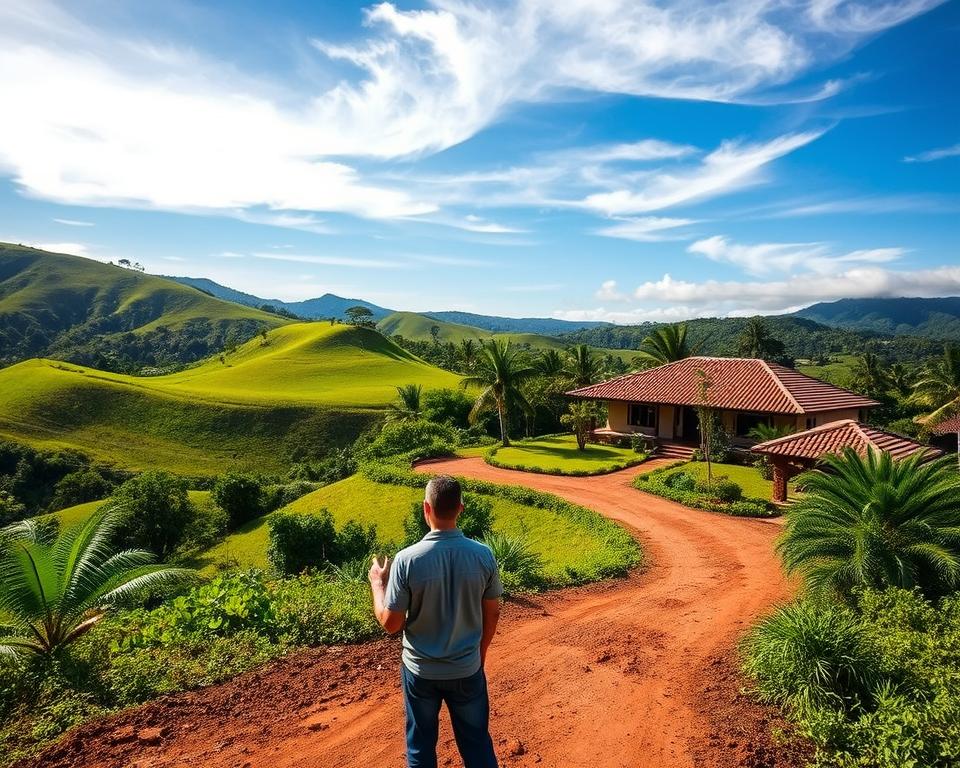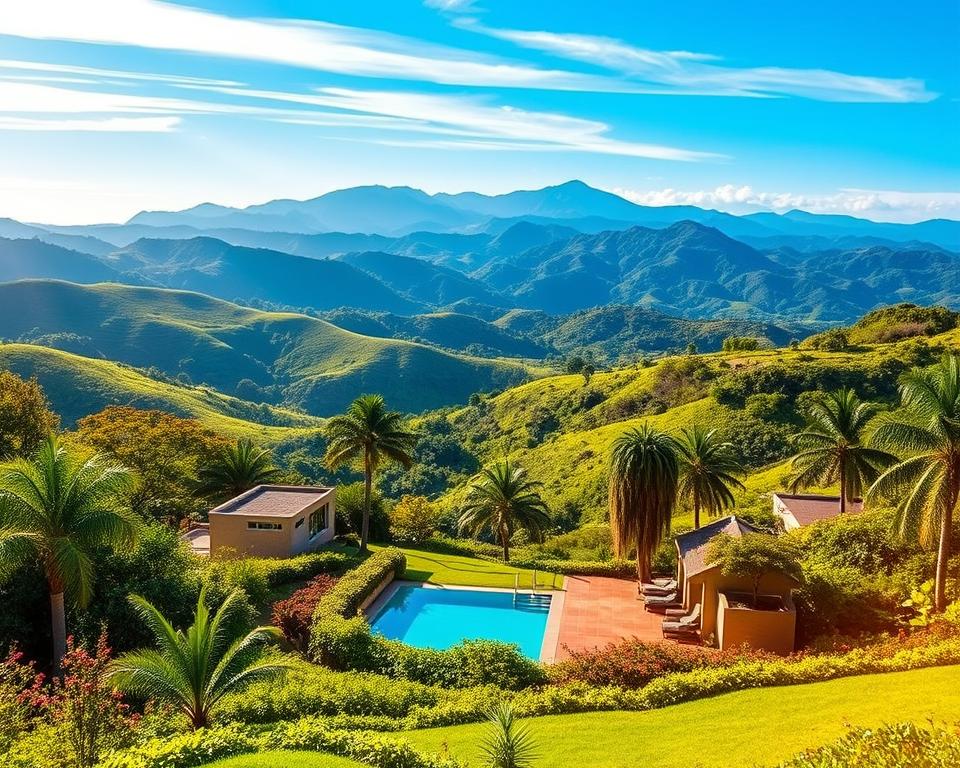Costa Rica Property Selling Process Explained by Us
selling, or investing in Costa Rica. With over two decades of coast-to-coast experience, we deliver seamless transactions through expert guidance and clear communication.
Selling a property in Costa Rica can be a rewarding experience, but understanding the local market and legal requirements is crucial. As a foreigner or local resident, you have the same rights to buy, own, and sell property in Costa Rica.
Our comprehensive guide will walk you through the property selling process, covering everything from preparing documentation to closing the sale, with expert insights on pricing and navigating legal requirements.
Understanding the Costa Rica Real Estate Market
The Costa Rica real estate market is a complex and dynamic environment that requires a deep understanding of local trends and regional variations. As we navigate this market, it’s essential to consider the various factors that influence property values and sales.
Current Market Trends and Opportunities
The current state of the Costa Rica property market is characterized by a mix of high-demand areas and emerging regions. Properties in tourist hotspots like Guanacaste or the Central Valley tend to sell faster than those in remote or rural areas.
- Coastal areas in Guanacaste and the Central Pacific command higher prices due to their popularity among tourists and expatriates.
- The Central Valley, including San José, offers more affordable options with urban amenities, appealing to both locals and expatriates.
- Emerging areas like the Southern Zone are gaining interest from investors looking for growth potential.

Regional Differences in Property Values
Regional differences significantly impact property values in Costa Rica. Factors such as microclimates, infrastructure development, and the presence of expatriate communities play crucial roles.
- Properties with ocean views can command 30-50% higher prices than similar properties without views.
- Infrastructure development has boosted property values in previously remote areas, creating new opportunities.
- Properties in areas with established expatriate communities tend to sell more quickly and at better prices.
Understanding these regional differences is crucial for pricing your Costa Rica property competitively and identifying the most effective marketing strategy.
Property Selling Process Explained in Costa Rica
Costa Rica’s real estate market offers various opportunities for sellers, but it’s essential to grasp the intricacies of the property selling process. Understanding the local market trends, legal requirements, and the steps involved in selling a property can significantly impact the success of the sale.

Legal Rights of Foreign Sellers
Foreign sellers in Costa Rica enjoy many of the same rights as local citizens, thanks to the country’s welcoming stance towards foreign investment. However, there are specific legal considerations that foreign sellers must be aware of, including tax obligations and property laws.
Step-by-Step Overview of the Selling Journey
The process of selling a property in Costa Rica involves several key steps. First, sellers must prepare their property for sale, which includes gathering necessary documentation and potentially making repairs or improvements. Once the property is listed, either through a real estate agent or privately, the seller will receive offers. After accepting an offer, the due diligence period begins, during which the buyer examines the property’s legal status and condition. Following due diligence, the sale is finalized through a closing process.
- The due diligence period typically lasts 30-45 days.
- The closing process usually takes 2-4 weeks after due diligence is completed.
- Seasonal factors, such as increased buyer activity during North American winter months, can affect selling timelines.
Timeline Expectations for Property Sales
The time it takes to sell a property in Costa Rica varies significantly based on factors like location, property condition, pricing, and market demand. Properties in high-demand areas like Guanacaste or the Central Valley tend to sell faster than those in more remote regions. On average, sellers should prepare for a timeline of 6-12 months from listing to closing. Recent data shows that properties on the Nicoya Peninsula averaged 471 days on market in 2024, highlighting the importance of setting realistic expectations.
Pricing competitively from the start can significantly reduce the time a property spends on the market. Properties priced correctly initially tend to sell 30-40% faster than those requiring price adjustments later on.
Essential Documentation for Selling Your Property
To successfully sell your Costa Rica property, it’s essential to understand the necessary documentation. The process involves gathering several key documents to ensure a smooth transaction. We will guide you through the required paperwork, including property title and survey plans, tax compliance documentation, and corporate documentation if your property is held in a corporation.
Property Title and Survey Plan Requirements
The property title is a critical document that proves ownership. In Costa Rica, property titles are recorded in the Public Registry. We recommend obtaining a recent survey plan to ensure that the property boundaries are clearly defined. This is particularly important if you have made any changes to the property since the last survey.
Tax Compliance Documentation
Tax compliance is a crucial aspect of selling a property in Costa Rica. Sellers must provide proof that they are up to date with their tax obligations. This includes obtaining a certificate from the tax authorities, confirming that all taxes have been paid. We will help you navigate the tax compliance process to avoid any delays.
Corporate Documentation for Properties Held in Corporations
Many properties in Costa Rica are held in corporations (Sociedades Anónimas or S.A.s) for liability protection and simplified inheritance. If your property is owned by a corporation, we need proof of ownership or powers of attorney to sell your Costa Rica property out of the corporation or transfer the shares of the corporation. This proof is called a personería jurídica, which can be obtained from the Registro Nacional website at a cost of 2,800 Colones.
- A current personería jurídica (corporate certification) is essential, showing who has legal authority to represent the corporation and sell the property.
- Corporate sellers must provide proof that all corporate taxes and annual filing requirements are current.
- Board of directors’ resolutions authorizing the sale must be properly documented and notarized according to Costa Rican corporate law.
- For foreign-owned corporations, additional documentation may be required to establish the connection between the foreign entity and the Costa Rican corporation.
Pricing and Valuation Strategies
The right price for your Costa Rica property can make all the difference in the selling process. Pricing your property accurately is crucial for attracting potential buyers and achieving a successful sale.
Methods for Determining Your Property’s Value
To determine your property’s value in Costa Rica, consider factors such as location, property condition, amenities, and recent sales of comparable properties. Working with a local real estate agent who understands the Costa Rica real estate market can help you set a competitive price. Our data indicates that properties priced within 5-10% of market value typically sell faster and for better final prices.
- Analyze recent sales of comparable properties to understand the current market trends.
- Consider the unique features of your property, such as luxury amenities or prime location.
- Understand the psychology of international buyers who compare values across multiple countries and regions.
Pricing Competitively in the Costa Rican Market
Pricing your property competitively in the Costa Rican market requires an understanding of current inventory levels, seasonal fluctuations, and buyer psychology. We recommend pricing your property strategically, taking into account whether it’s a buyer’s or seller’s market. Transparency about property condition and any needed repairs can also support your pricing strategy.
- Adjust your pricing strategy according to seasonal demand, potentially setting higher prices during peak tourist seasons.
- Price your property at psychological thresholds (just below round numbers) to attract more interest.
- Be aware that overpricing can lead to fewer inquiries and a longer selling process.
Effective Marketing Approaches for Costa Rica Properties
In Costa Rica’s competitive real estate market, effective marketing can make all the difference in selling your property quickly. To attract potential buyers, both locally and internationally, a strategic marketing approach is essential.
Digital Marketing Strategies for Local and International Buyers
Digital marketing plays a crucial role in reaching a wider audience. We recommend utilizing online platforms and social media to showcase your property. High-quality listings with professional photos and detailed descriptions can significantly increase viewer engagement.
For international buyers, it’s essential to highlight the lifestyle and amenities your property offers, as well as its unique features that make it an attractive investment opportunity in Costa Rica.
Working with Real Estate Agents: Open vs. Exclusive Listings
When deciding how to market your property, choosing between open and exclusive listings with real estate agents is a critical decision. Exclusive listings can provide more personalized service and focused marketing efforts, while open listings can increase exposure through multiple channels.
We advise considering your goals and the specific characteristics of your property when making this decision to ensure you’re maximizing your chances of a successful sale.
Preparing Your Property for Viewings and Photography
First impressions are crucial, and preparing your property for viewings and photography can make a significant difference. We suggest making strategic improvements that enhance your property’s appeal without overcapitalizing.
Professional photography is also key, as our data shows that listings with professional photos receive 61% more views than those with amateur images. Additionally, light staging for vacant properties can help buyers envision the lifestyle potential.
Navigating Taxes and Closing Costs
When selling property in Costa Rica, understanding the tax implications and closing costs is crucial for a smooth transaction. Sellers must be aware of the various financial obligations associated with the sale of their property.
Understanding Capital Gains Tax in Costa Rica
Capital Gains Tax is a significant consideration when selling property in Costa Rica. The tax is levied on the profit made from the sale of the property. We recommend consulting with a tax professional to understand the implications of this tax on your specific situation.
- Capital Gains Tax rates can vary based on the seller’s residency status and the property’s location.
- Sellers should be aware that certain exemptions may apply, such as for primary residences.
Real Estate Transfer Taxes and Fees
In addition to Capital Gains Tax, sellers must also consider Real Estate Transfer Taxes and other fees associated with the transfer of property ownership. These costs can include registration fees and notary fees.
- Transfer taxes are typically a percentage of the sale price.
- Notary fees are part of the legal costs required for the property transfer.
Agent Commissions and Legal Fees
Agent commissions and legal fees are other significant costs associated with selling property in Costa Rica. Commissions can range from 5-7% of the sale price, while legal fees typically range from 1-1.5%.

- Commission structures can vary by region and property type.
- Legal fees cover the attorney’s work in preparing documents and handling the closing.
Understanding these costs upfront can help sellers in Costa Rica better navigate the selling process and avoid unexpected expenses at closing.
Conclusion: Partnering with Gap Real Estate for a Seamless Selling Experience
With over two decades of experience in Costa Rica’s real estate market, we’ve helped numerous sellers navigate the process successfully. Selling a property in Costa Rica involves understanding the local market, legal requirements, and tax implications. At Gap Real Estate, we simplify this complex process through expert guidance and clear communication.
Our deep local knowledge and end-to-end support ensure that every detail is handled, from initial property valuation to final closing. We effectively market your property to both local and international buyers, maximizing exposure. Our team includes bilingual professionals, and we maintain strong relationships with qualified attorneys, notaries, and tax professionals to ensure a smooth transaction.
By partnering with us, you gain a dedicated team committed to achieving your specific goals, whether you’re seeking a quick sale, maximum return on investment, or specific terms. We focus on delivering a seamless experience, ensuring clarity, confidence, and a stress-free process. Contact us today at +(506)-4001-6413 or [email protected] to discuss how we can help you sell your Costa Rica property with confidence and ease.




